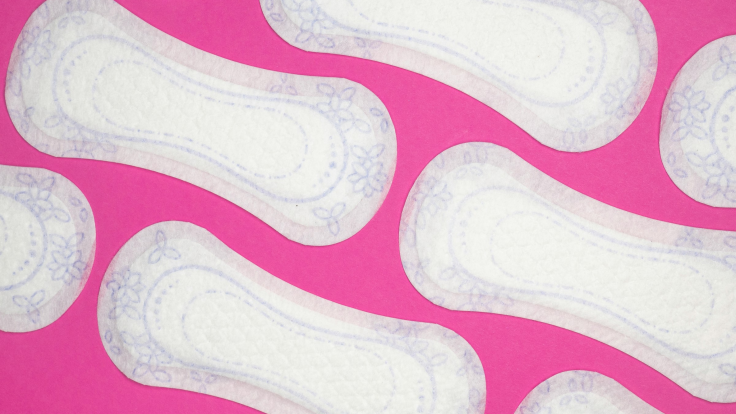
A shocking TikTok video showing what appears to be maggot-like moulds inside an Always sanitary pad has triggered widespread alarm online. The clip, posted by a user on TikTok, has drawn concern from women worldwide, questioning the safety of Always pads and other menstrual products.
It surfaced in October 2025 and quickly spread across multiple social media platforms, pushing manufacturer Procter & Gamble (P&G) into the spotlight. The video's disturbing visuals and unclear explanation have sparked urgent calls for investigation and answers about product safety and hygiene.
Always Pads With Moulds Now Viral
TikTok user @mamaaakris shared the now-viral Always pads video, holding up a pad under light that revealed several dark, uneven spots across its surface. She captioned the post, 'Please be aware of this. Why does a brand new just out of the bag pad have mold on it?'
Under normal lighting, the pad looked clean, but when tilted, the black markings became visible. As of 24 October 2025, the Always pads TikTok video has reached over 27 million views, spreading rapidly on X and Instagram.
@mamaaakris Please be aware of this. @Always why does a brand new just out of the bag pad have mold on it? #fyp #women #womenshealth
♬ original sound - | 𝒦𝓇𝒾𝓈 |
Other social media users soon uploaded similar clips, some showing greenish or dark mould inside sealed sanitary pad packs. According to NewsX, the video showed black and green moulds growing on the napkin's surface.
P&G has not yet released a statement. Various media outlets made attempts to contact the company for comment, but no official reply has been made public.
Are They Moulds or Maggots?
Experts have not confirmed what the dark spots actually are. Health professionals suggest they might resemble black mould, such as Aspergillus niger or Stachybotrys chartarum, which thrive in moist and fibrous materials like cotton.
Hygiene experts stated that prolonged contact with mould or bacteria from contaminated pads could lead to irritation and even infection. Some netizens, however, argued that the black areas could simply be fibres or manufacturing residue.
One user commented, 'This might just be leftover cotton material'. Still, the ongoing uncertainty has stirred distrust in commercial pad brands, leading to renewed discussions about menstrual hygiene standards and transparency in manufacturing.
Women Expressed Concerns on Social Media
Women across TikTok expressed alarm and frustration. One commenter wrote, 'Take it to a microbiology lab. If it's harmful, this is a serious issue'. Another said: 'So now even pads aren't safe for us'.
Several users also shared stories of discomfort after using Always pads. TikTok user @ratqueen910 claimed: 'Two months ago I got the worst chemical burn between my legs. I've used Always pads since school. They must've changed something'.
Online discussions have since included suggestions for switching to organic or reusable pads. On X, others called for product testing and transparency, with one post stating, 'It's time big brands are held accountable for what women use on their bodies'.
Can Moulds Grow in Sanitary Napkins?
Hygiene specialists say moulds can form in sanitary pads if stored in humid or damp conditions. Pads are made of absorbent, non-woven fibres that can trap moisture, creating an ideal environment for mould spores.
Experts said that napkins can deteriorate if they're damp or kept for too long. This can contaminate the sanitary pads even if they're sealed. Although pads undergo sterilisation during manufacturing, improper storage or transport can still lead to contamination over time.
Factors like high humidity, expired stock, or long storage periods may all contribute to the issue seen in the viral clips.
How to Properly Store Sanitary Pads
Experts recommend several steps to maintain hygiene and prevent contamination:
- Keep pads in a cool, dry place away from moisture.
- Avoid bathrooms or humid storage areas.
- Check expiration dates before buying or using.
- Avoid bulk purchases; buy enough for one or two cycles only.
- Store opened packs in clean, sealed containers or cotton pouches.
- Wash your hands before touching pads to avoid bacterial transfer.
- Replace pads every two hours to prevent bacterial build-up.
- Discard any pads with unusual smells, stains, or damp surfaces.
The viral Always pads video continues to fuel debate about menstrual product safety, prompting many women to rethink how they store and use sanitary pads.







